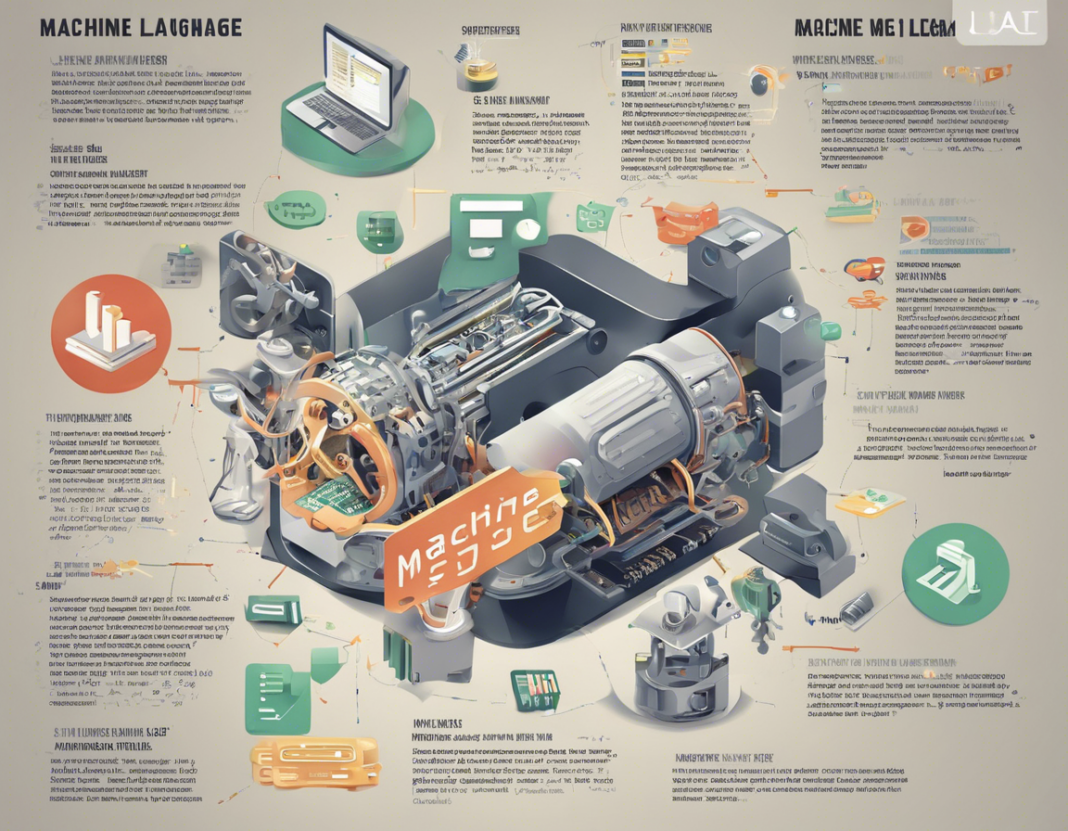Machine language, also known as machine code or machine level language, is the low-level programming language used by computers to communicate and execute tasks. While it may not be the most user-friendly or easily readable language for humans, machine language plays a crucial role in the world of programming and software development. In this article, we will explore the benefits and advantages of using machine language in programming.
Understanding Machine Language:
Before delving into the benefits of machine language, it is important to understand what it is. Machine language is a set of instructions and data that a computer’s central processing unit (CPU) can execute directly. It is composed of binary code, which consists of 1s and 0s, representing the fundamental operations that a computer can perform.
Benefits of Machine Language in Programming:
-
Efficiency: Machine language is the most efficient way for a computer to execute tasks. Since computers understand and process instructions in machine code directly, there is no need for translation or interpretation by a compiler or interpreter. This results in faster execution times and optimal performance.
-
Low-Level Control: Machine language allows programmers to have precise control over the computer hardware. By writing code directly in machine language, programmers can access and manipulate the registers, memory addresses, and other hardware components of a computer, enabling them to optimize performance and resource utilization.
-
Embedded Systems: Machine language is commonly used in embedded systems, where efficiency and performance are paramount. Embedded systems are specialized computing devices designed for specific tasks, such as controlling machinery, appliances, or automotive systems. Programming in machine language allows developers to create highly optimized code for these systems, ensuring reliable and efficient operation.
-
Security: Machine language can be used to create secure and tamper-resistant code. By writing programs directly in machine code, developers can implement various security measures, such as encryption, obfuscation, and anti-reverse engineering techniques, to protect their software from unauthorized access or modification.
-
Learning Experience: While modern programming languages have abstracted many of the complexities of machine language, learning to program in machine code can provide valuable insights into how computers work at the hardware level. Understanding machine language can enhance one’s overall programming skills and make them better equipped to tackle complex software development challenges.
-
Performance Optimization: For applications where performance is crucial, such as real-time systems, gaming, or high-frequency trading, programming in machine language allows developers to optimize code for speed and efficiency. By fine-tuning algorithms and data structures at the machine level, programmers can squeeze out every bit of performance from the hardware.
-
Legacy Systems: In some cases, legacy systems or outdated hardware may still require programming in machine language. By understanding and being able to write code in machine code, developers can maintain and update these systems without the need for costly hardware upgrades or replacements.
In conclusion, machine language remains a fundamental aspect of programming, offering unique benefits and advantages for developers looking to optimize performance, control hardware resources, enhance security, and deepen their understanding of computers. While high-level programming languages have made software development more accessible and user-friendly, the importance of machine language in the programming landscape cannot be overlooked.
FAQs (Frequently Asked Questions):
-
Is machine language the same as assembly language?
No, machine language consists of raw binary instructions, while assembly language is a more human-readable representation of machine code using mnemonics. -
Can modern programmers benefit from learning machine language?
Yes, learning machine language can provide a deeper understanding of how computers work and can help in optimizing code for performance-critical applications. -
Is it necessary to write programs directly in machine language today?
In most cases, high-level languages like C++, Java, or Python are more commonly used for software development due to their readability and portability. However, knowledge of machine language can be beneficial in certain specialized applications. -
Do all processors understand the same machine language?
No, different processor architectures have their own specific machine languages. Programs written in machine code are specific to the processor they are intended to run on. -
Can errors in machine language programming cause hardware damage?
While errors in machine language programming can lead to system crashes or unexpected behavior, they are unlikely to cause permanent hardware damage as modern computers have built-in safeguards to prevent such occurrences.






